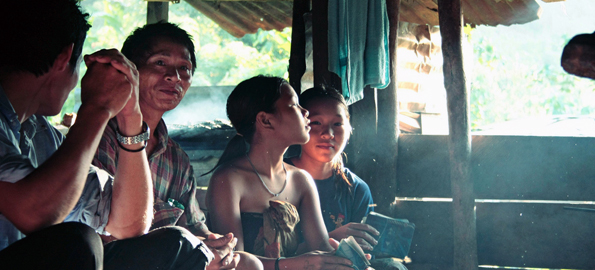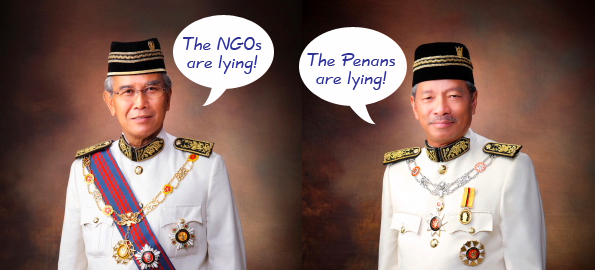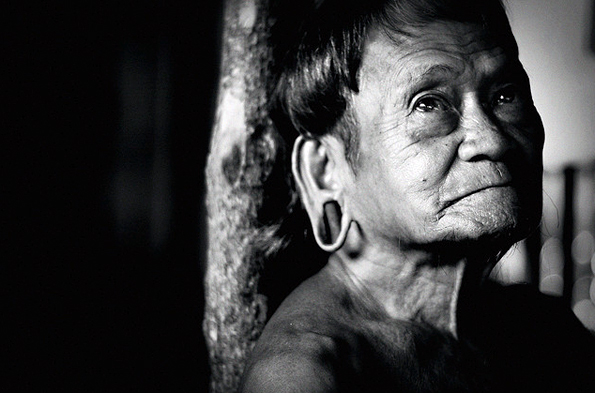
THE phenomenon of indigenous women like the Penan being violated is not peculiar to Malaysia. Indeed, there are parallels in other countries, including a developed nation like the US.
In their 2007 report, Maze of Injustice: The failure to protect indigenous women from sexual violence in the USA, Amnesty International (AI) reported that indigenous women were 2.5 times more likely to be raped and sexually assaulted than other women in the US. The contributing factors to this state of affairs? Discrimination against the indigenous peoples; inadequate policing; poor training; and delays in responding to them.
In one AI-documented case, Della Brown, a 33-year old Alaska Native woman, was raped, mutilated and murdered in September 2000. Her body was discovered in an abandoned shed with her skull so pulverised, the coroner compared it to a “bag of ice”.
The AI report said the indigenous community in the US was distrustful of the police and reluctant to report instances of sexual violence. The report also documented a history of government colonisation and conquest of the indigenous community, for example, compelling them to assimilate into non-indigenous society. This historical backdrop only served to perpetuate sexual violence against indigenous women.
Penan case
Some of the findings of AI’s report sound eerily familiar to the Penan community’s trials and tribulations in Malaysia.
The Penan have been involved in a long struggle against the Sarawak government over the awarding of licences to timber companies allowing these companies to log and deforest the Penans’ lands. These logging companies have spelt further trouble for the marginalised community. A government task force and an independent fact-finding mission by non-governmental organisations have confirmed that logging companies’ employees have been sexually assaulting and preying upon Penan women and girls for years.
It’s been almost two years since the sexual violence was highlighted by The Star and almost a year since the government task force’s report was released. But there is precious little evidence that the police and the government took the rape and assaults seriously. Like the US police and government, the Malaysian government and police have demonstrated similar scepticism, discrimination and foot-dragging.

No less than Sarawak Deputy Chief Minister Tan Sri Alfred Jabu reportedly said that the non-governmental organisations (NGOs) which highlighted the Penans’ plight were “living off the misery of the few, and manufactured lies.” Sarawak Land Development Minister Dr James Jemut Masing told the BBC in December 2009 that the Penan “operate on different social etiquette as us”. He said a lot of the sex was actually consensual. When confronted with an account of a girl who was beaten unconscious and raped he replied, “They change their stories, [as and] when they feel like it. That’s why I say Penan are very good story tellers.”
Indeed, the Sarawak police closed their investigations in 2009, citing lack of evidence. When asked about the Penan Support Group (PSG)’s recent report containing more allegations of sexual violence, state police commissioner Datuk Mohmad Salleh said the Penan had been uncooperative during investigations. “The police have taken all necessary efforts in the investigation but the real problem lies with the victims themselves,” Mohmad reportedly said.
Mohmad also accused PSG of “politicising” the issue to tarnish the Sarawak police’s image. And so, instead of taking the reports of sexual violence seriously and ensuring the community was protected, the police blame the survivors and their advocates instead.
Does the state really care?

Surely, if the police really cared about the Penan, the state police commissioner would not be blaming the survivors of violence for not being able to catch the crooks who prey on them.
And by saying that the Penan can “come to me directly” if the district offices ignore them, what is Mohmad saying? Does he expect the Penan, who live in the deep interior, to drive out and knock on his door just like that? Why is the burden placed on the victim to find a way to be heard? Why isn’t a state authority like the police taking the initiative instead to assist a vulnerable community?
One also wonders, did the police commissioner take pains, during police investigations, to ensure that officers complied with cultural norms? Did they bring along female officers to conduct the interviews? Were they properly trained to handle accounts of sexual violence? Did they ensure there was an interpreter whom the Penan felt comfortable with?
Trust is an important component in encouraging survivors of rape and sexual abuse to relate their ordeal. It is questionable whether our police took pains to build trust with the Penan community especially since the state police are seen to work hand-in-glove with powerful logging companies to protect loggers’ interests. For example, the police have arrested Penan and dismantled their blockades repeatedly in a show of disrespect for indigenous rights. How then are Penan women and girls to trust the state police when reporting crimes by loggers against them?
Class struggle

Truth it, the government really doesn’t care about the Penan. That’s why it took the government nearly a year to make public a task force report about the Penan rapes and sexual assault. And that’s why nothing concrete has been done to investigate these crimes and ensure they don’t happen again.
But imagine this: If a minister’s daughter or wife was raped, how do you think the police would respond? How do you think the cabinet would react?

But it is not just the rich and powerful who are entitled to have their rights, including the right to security, upheld by the state. In fact, it is incumbent on the state to guarantee that the poor and marginalised are protected, especially because, like the Penan, these groups would have less resources to do so on their own.
So, here’s a thought. If Umno and Perkasa were serious about defending bumiputera rights and upholding affirmative action, this would be a good place to start.
PM’s walkabout

For now, apart from the Sarawak police denying culpability in not ending the terror against the Penan, Prime Minister Datuk Seri Najib Razak is expected to visit the Penan settlements in Ulu Baram. Apparently, his visit is to demonstrate that he is a “prime minister for all Malaysians”, and that the government cares.
But really, it’s not a prime ministerial walkabout that the Penan community needs. It’s a systematic revamp of the government’s shabby treatment of indigenous rights — from land, health, education and freedom from sexual violence.
Indeed, Najib’s visit is two years late. Not only that, as prime minister, he does not need to do a walkabout in Ulu Baram to ensure the Penan receive justice and protection. He need only direct his ministers in charge of home security and women’s affairs to take stringent measures to end the violence against the Penan. Why hasn’t he done that?
Given his government’s lack of results thus far in protecting the Penan community, his current visit begs this question: Is Najib more concerned about the Penan or about his own administration’s public reputation?
More importantly, what’s in store for the Penan if their story is no different from the story of the indigenous peoples in the US? ![]()
[related-posts]
The Nut Graph needs your support


Sean says
“what’s in store for the Penan…?”
Succession
Are good quality records of the Penan being made so that our descendants might ‘connect’ with them as it is suggested one can with the North American Indian at the Indian Museum? Then again, I’m not sure I would cross the road to go to a museum about the North American Indian. There’s something not quite relevant about truncated histories – ones that are no longer being written – don’t you think?
The government isn’t ignoring indigenous rights in the face of contrary public opinion. It’s important to document the mechanism by which the Penan will disappear, but at the same time I think there’s an opportunity to reflect on our own roles in their demise. I didn’t do anything to prevent the disappearance of the Baiji (yes, I know they’re not people) either. It’s not that I don’t care, more that I have trouble reconciling my personal threshold at which care becomes action with the uncomfortable idea that inaction (including those actions which are superficially supportive but ultimately inadequate) so often results in the extinction of flora, fauna and even peoples.
I haven’t lived that long, though it’s likely more than half my life has already passed, but I’m already aware of several instances where I have thought “if I don’t do anything, a great wrong will happen!”, and then I didn’t do anything and the great wrong happened and became a not-very-interesting story about yet another great wrong that happened while not very many people actually tried to do anything of substance to avert it.
As time goes on those great wrongs seem to be documented in ever greater detail and disseminated with shorter latencies to ever greater numbers of people, but the wrongs don’t seem to be diminishing in frequency. Perhaps there’s a fundamental truth in there somewhere that will be of little consolation to the Penan. I’m not expecting it to be of much consolation to me either, so I expect I’ll expend very little more effort on its consideration. Do Catholics struggle with this idea much – do they still have a Sin of Omission? Does Islam have an analogous concept?
Andrew I says
As per usual, everyone else is lying. Some people never lie. They are on par with God.
Hang Jebat says
Some bumiputeras are more equal than other bumiputeras…
lkl says
What’s clear from the Penans’ dilemma is that some races get more attention than others.
It also proves that a female minister doesn’t always have more empathy towards abused women, as demonstrated by Shahrizat Jalil. Gender does not matter here.
As for Najib, I suspect his doctor told him to walk more so he turns it into a public relation exercise.